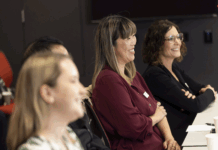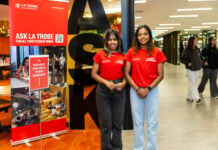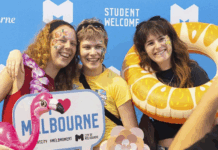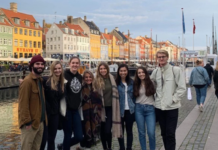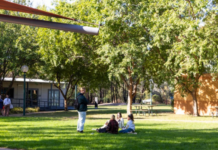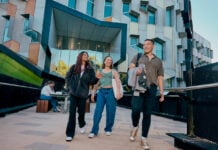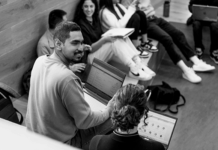We are committed to improving the way we work with Indigenous communities, staff and students. Our vision is to become an institution where Indigenous leadership, self-determination and knowledges thrive, for the benefit of Indigenous students, staff and communities.
As a student, there are many ways to increase your understanding and appreciation of Indigenous culture, whether by attending events, undertaking training, joining cultural activities, yarning with the Indigenous Student Support team on your campus or simply taking the time to learn more about the Traditional Lands that you’re on.
Here are five ways to connect and increase your understanding of Indigenous peoples, culture and knowledge:
1. Join an event
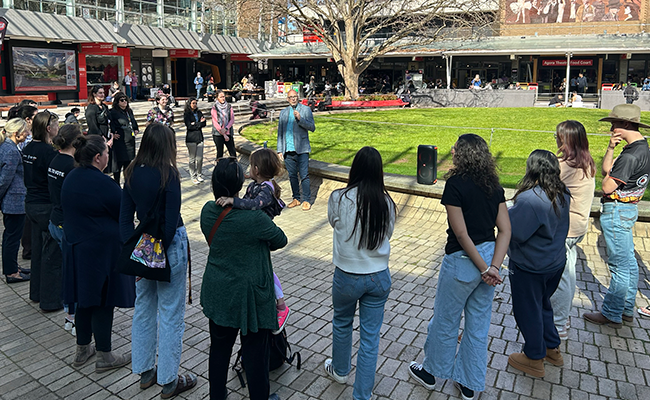
During Indigenous Week (25 to 29 August), culturally grounded events that honour Indigenous ways of being, doing and knowing will be held across all campuses. We encourage you to connect, participate, listen, reflect, engage meaningfully and ask questions, not just during Indigenous Week but every day!
2. Follow La Trobe Indigenous on Instagram
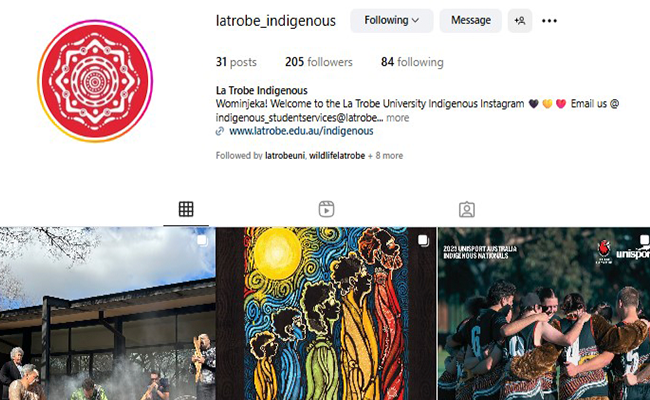
Follow @latrobeindigenous on Instagram to stay updated on all things Indigenous at La Trobe, from campus events to student stories.
3. Get to know the Indigenous Student Service Units
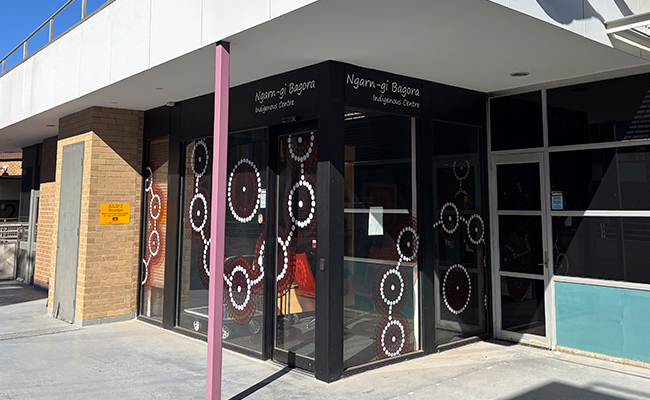
The Office of Indigenous Strategy and Education has Indigenous Student Support Units across La Trobe’s five Victorian campuses. The units provide culturally safe, holistic support for Aboriginal and Torres Strait Islander students. The staff are welcoming, approachable and always happy to yarn with you.
The Indigenous Student Support Units and staff are based at all La Trobe Victorian campuses:
Albury-Wodonga
Woddha Gki-Lya Indigenous Education Unit
Location: Room 136, Building 6
E: Indigenous_studentservices@latrobe.edu.au
Bendigo
Jimbeyer Boondjhil Indigenous Unit
Location: Ground floor, Student Services Centre
E: Indigenous_studentservices@latrobe.edu.au
Melbourne (Bundoora)
Ngarn-gi Bagora Indigenous Centre
Location: Office 202, Level 2, Agora East Building
E: Indigenous_studentservices@latrobe.edu.au
Mildura
Indigenous Student Services Officer
Location: Dulka Yappata building
E: Indigenous_studentservices@latrobe.edu.au
Shepparton
Ngarrapna Indigenous Education Unit
Location: Rooms 122 & 123, 210 Fryers Street
E: Indigenous_studentservices@latrobe.edu.au
4. On Country learning
Across the five campuses La Trobe and undertakes teaching, learning and research on the Traditional Countries of the following Aboriginal language groups:
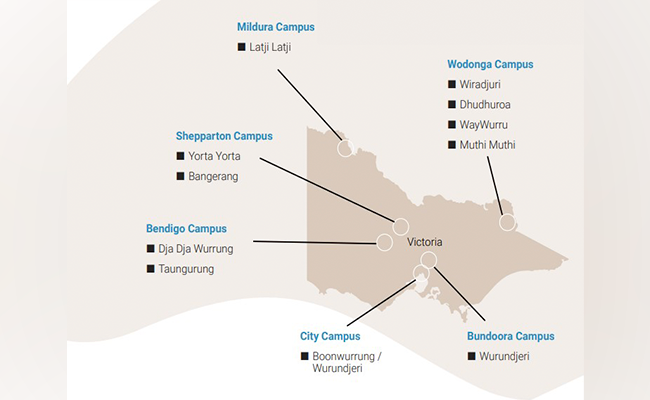
Source: La Trobe University, Inclusive Language Guide
On Country learning involves engaging with local Aboriginal community members and Traditional Owners to learn about the Country you’re on, the history and local events. This can happen all year round. To become informed about cultural events in your area, you may consider subscribing to the newsletter of your local Aboriginal organisation.
To make the most of On Country learning, it’s essential to connect with local Aboriginal Co-operatives and Traditional Owner Groups. By engaging respectfully and seeking opportunities to participate in events and activities, you will enhance your understanding of Indigenous culture and history.
Below are some of the local Co-operatives and Traditional Owner Groups near our campuses:
Find your nearest centre ↓
Melbourne / Bundoora Campus
Bendigo Campus
Mildura Campus
Shepparton Campus
5. Learn about Indigenous culture, history and contemporary issues
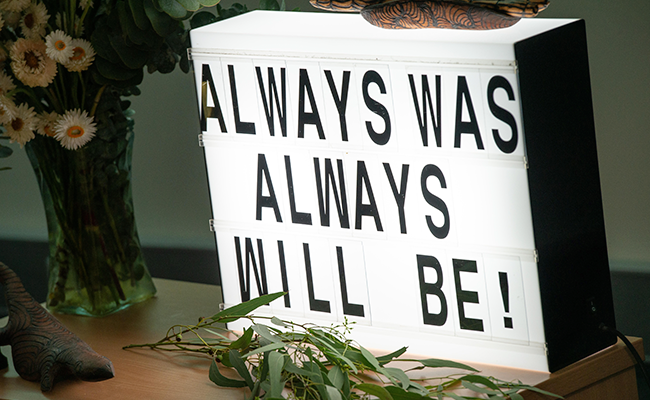
As part of your course, you are required to complete the Wominjeka online module before graduation. This thoughtfully curated short course introduces students to Indigenous Australian history, culture and customs, with a focus on fostering cultural literacy and strengthening cultural safety. It reflects La Trobe’s commitment to embedding Indigenous perspectives into teaching, learning, and research.
Take the time to immerse yourself in this course and learn about the rich Indigenous Australian culture. Students can enrol via StudentOnLine.
Additional resources
Learning is an ongoing journey. You can continue to expand your knowledge of Indigenous culture beyond the Wominjeka module with these additional resources:
Resources ↓
Film:
- Rabbit-Proof Fence: The story of three children forcibly removed and their 1500 kilometre journey back to their family and community. “Rabbit-Proof Fence” sheds light on the trauma and injustices faced by Indigenous Australians, it portrays a tragic chapter in Australia’s history while celebrating the strength and spirit of the human will to survive and return to family and community
- BabaKiueria: Is a role reversal short film that explores what life might be like for non-Aboriginal People if history was reversed. The film is intended to provoke thought and discussion about the treatment of Indigenous Australians and highlights the need for reconciliation and a more equitable society.
Documentary:
- First Australians: Seven series that showcases First Australians from the beginning of white colonisation,through to the protection era and the life and times of Aboriginal people. We learn about some of the influential leaders who shaped justice and fought for basic human rights in Australia. Eddie Koiki Mabo and the landmark High Court case in 1992 that overturned terra nullius and recognised Native Title. William Cooper a well-known and respected Yorta Yorta leader who fought for Aboriginal rights and petitioned King George VI in 1933 for representation in Parliament
Further reading (history):
- Inga Clendinnen. (2004.) Dancing with Strangers: Europeans and Australians at First Contact (opens in a new tab). Cambridge: Cambridge University Press.
- Richard Broome. (2010.) Aboriginal Australians: A History since 1788. St. Leonards: Allen & Unwin.
Further reading (society and culture):
- Deborah Bird Rose. (2000.) Dingo Makes Us Human: Life and Land in an Aboriginal Australian Culture. Cambridge: Cambridge University Press.
- Stephen Meucke. (2004.) Ancient and Modern: Time, Culture and Indigenous Philosophy. Sydney: UNSW Press.
Further reading (memoir and autobiography):
- Anita Heiss. (2012.) Am I Black Enough for You? North Sydney: Bantam.
Get in touch
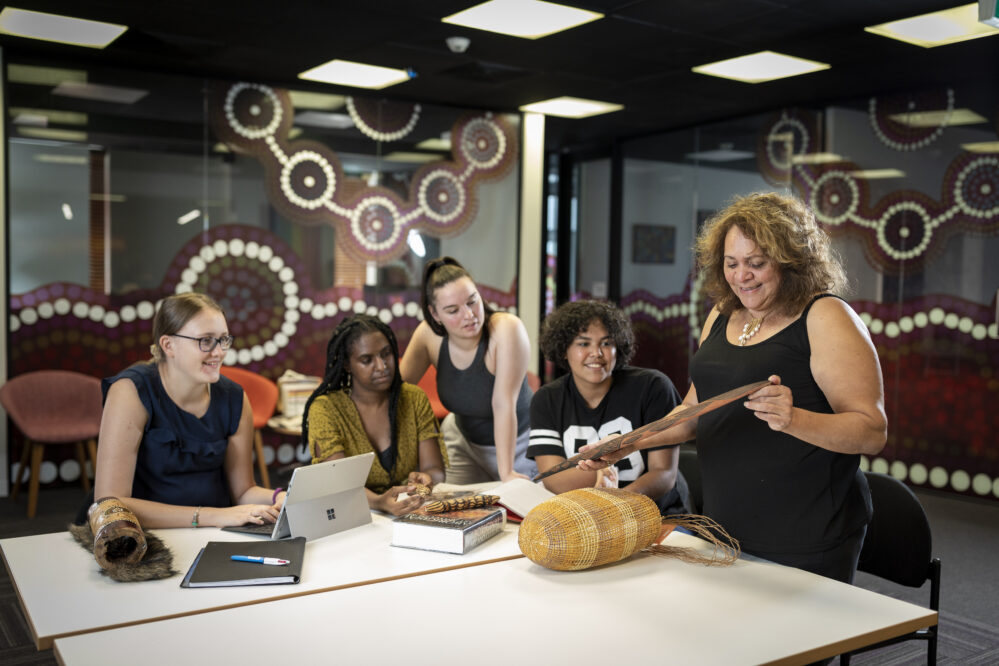
If you’re an Aboriginal and Torres Strait Islander student and would like to learn more about the support services on campus, including the Indigenous Student Support Units, please get in touch! If you are not Aboriginal and would like to learn more, we encourage you to reach out. Email: Indigenous_studentservices@latrobe.edu.au
To learn more about Indigenous student services at La Trobe, visit the website:
Acknowledgment of Country
La Trobe University acknowledges that our campuses are located on the unceded lands of many Traditional Custodians in Victoria and New South Wales. We recognise their ongoing connection to the land and value their unique contributions to the University and wider Australian society. La Trobe University is committed to providing opportunities for Aboriginal and Torres Strait Islander people, both as individuals and as communities, through learning and teaching, research, and community partnerships across all campuses. We pay our respects to Elders past and present and thank them for their ongoing care of the land, skies, and waterways. We also acknowledge our Indigenous staff for their leadership, knowledge, dedication and ongoing commitment to advancing and supporting our shared strategic goals.


